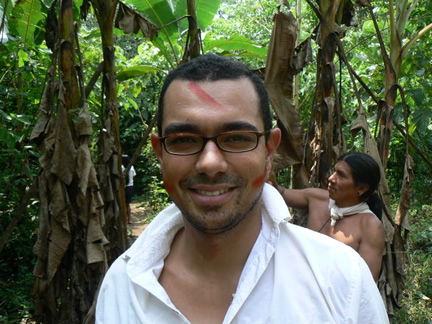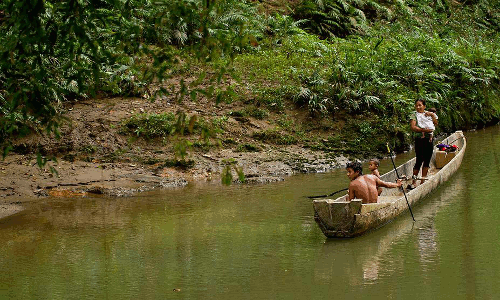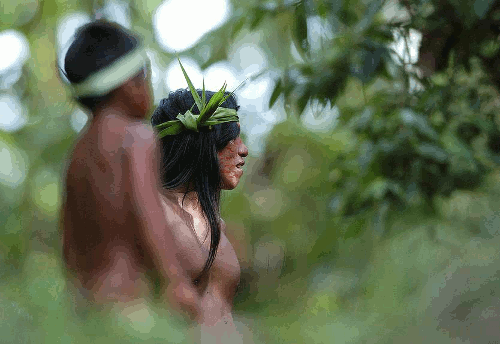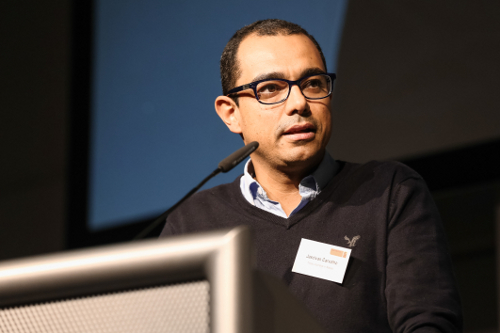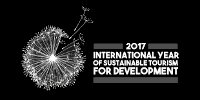Jascivan Carvalho is an Earth Changer.
Owner and General Manager of Tropic, an adventure and expedition tour operator that creates positive impacts, Jascivan has pioneered socially and environmentally responsible tourism throughout Ecuador, developed a tourism enterprise with the Huaorani indigenous people in the remote Amazon rainforest, winning international recognition and creating a sustainable tourism incubator, network and model along the way currently being applied to Floreana Island in The Galapagos as their first Community-Based Tourism programme.
Places
I was born in Quito, Ecuador, to an Ecuadorian mother and Brazilian father. I grew up in Brazil returning to Ecuador to study at Quito’s prestigious Catholic University to study Commerce with a Marketing specialisation. While at University, I began working part time with an uncle, combining theory with practical aspects of business. My goal was always to work in tourism in Ecuador, a country I fell in love with after coming from Brazil, and a great career opportunity, so I studied business as a way to acquire a broader perspective of the industry and I’ve been dedicated to tourism since graduating in 2002.
I moved to Barcelona, Spain, to study a postgraduate degree in Planning and Tourism Destinations Management at the School of Tourism and Hotel Management (Escuela Universitaria de Turismo y Dirección Hotelera – UAB) , with a thesis on Restructuring Community Ecotourism Products in Ecuador, my first foray into tourism.
Returning to Ecuador, I started working as tourism consultant and met Andy Drumm, the founder of Quito-based tour operator Tropic Journeys in Nature (Tropic). I had a dream opportunity to join the company as GM in 2004, became the Executive Director of an ecotourism Foundation that I helped to create, Conservation in Action, then, keen to take Tropic to the next level, became owner-manager in 2010.
Since 1994, Tropic had worked to develop a tourism enterprise with the Huaorani indigenous community in the remote Ecuadorean Amazon rainforest. The Huaorani (meaning ‘human beings’ or ‘the people’) are nomadic hunters and gatherers in an extensive territory, who consider themselves to be the bravest tribe in the Amazon. Their territory in Yasuni National Park, designated a UNESCO Biosphere Reserve in 1989, is said to be the most bio-diverse place on earth and still home to uncontacted tribes. Isolated for at least a thousand years, the Huaorani had no contact with the outside world until 1956, when missionaries made first contact - and the headlines, with five American missionaries killed by spear.
Since then, extractive industries and logging had exploited, bringing development projects and infrastructure, oil pipes and pollution to the territory’s fragile ecosystem, accompanied by further settlement and uncontrolled farming. Western ways threatened the Huaorani’s lands, traditions and culture, without compensatory benefits, with their resulting traditional defence. Exposed to these pressures, they came to us for help on how to protect their territory and culture. We wanted to help preserve a people in nature by keeping oil in the ground.
“It is an essential element for any business to know what the customer wants so to sell tourism, you have to know the world and you have to know where tourists are coming from in every way to understand their needs and be able to serve them”.
By bringing tourists to their community we could bring economic resources to the local community and simultaneously create ambassadors for the indigenous community and cause, letting the world know about the rich heritage in a backdrop of damage done by oil exploration in the forest and Huaorani hunting grounds. And so the initiative was born to take the existing relationship with the Huaorani and tourism up to the next level. I was lucky to be able to set up this ecotourism business thanks to the relationship with the indigenous tribe we’d developed over ten years.
Purpose
My motivation is challenge, of complex issues, to improve and apply practical knowledge to provide opportunities that support development, conservation and cultural sensitivities through innovation and networks. It was also against a background of some hard times with Tropic. We had not been differentiating in the very competitive Ecuador market, and we were not being faithful to our philosophy of ecotourism, style of business and vision. We decided to reinvent and start talking honestly about sustainable tourism.
For me sustainable tourism is support for and protection of the environment; non-intrusive support for local people and their communities; respect, support and promotion of distinct cultures, above all indigenous cultures in the Amazon region; ethical treatment of all business partners and clients; plus a determined effort to provide visitors with exceptional experiences. Some types of tourism can be unsustainable or unsustainable, depending how it’s done. Some tourism can’t ever be sustainable, such as sex tourism, for all its negative impacts. For me, mass tourism has nothing sustainable about it either, no education, respect or adaptation to the natural environment.
We decided to take a unique position in the market and create something absolutely spectacular and fascinating to the customer, with amazing product and the most incredible cultural experience in the world for the benefit of communities and environment. At the inception of Tropic we did some expeditions that, to me, they are still the most wonderful experiences I’ve had, but weren’t what the market wanted at that time: Camping in communities, expeditions of the Ecuadorian Amazon with indigenous communities and cultural exchange – very wonderful ecologically but really quite raw; five nights in a tent with the bathroom on the mountain and bathing in rivers can be hard. We did this for 8-10 years in which time, around the world in Africa, Asia, here in Latin America, remote parts of the world opened up for tourism, with huge infrastructure investment and very sophisticated operations for the tourist experience.
In the meantime our clients started to tell us not to worry about the guide because they would bring their own, another said that they would bring their own food, and I felt uncomfortable because that was the unique value in these tours, for these communities. A straw broke the camel’s back: A client said he wanted to go on a trip but not camping, because he wanted to stay with the locals. We were in a spectacular natural remote area with wonderful indigenous people, but a tourist who does what he wants can create as much negative impact in communities as an oil company destroying forests. I was not about to become an unsustainable operator.
I talked to communities explaining we needed to evolve from a camping and develop a certain comfort level, and one of the Huaorani communities took the initiative and suggested we could build a couple of cabins. So that started to create a model of inclusive business, between our innovative perspective and the community in a strategic joint alliance, the first where the community owns the private enterprise in the community territory, allied with an operator to take care of marketing and partly of sustainable operations.
We are dedicated to developing the best possible associative model with a realistic business vision and become a sustainable tourism business. In tourism, many operations and initiatives are born of a dream to protect a community or conserve nature, but they fail to see the light of day because they don’t think about the business model and market. Plus, any strategic alliance needs clear rules. We dedicate much time to try to understand any possible threats to our alliance that might exist so there’s no confusion or exploitation. We took at least two years to develop this business model and a unique product to market.
We also need to master best practice. Remote locations demand flawless logistics: If there’s no food, people can’t eat; if there’s no fuel, people can’t get out. We need to provide the logistics but in a minimal-impact way: You can’t take a steamroller carrying a thousand things to a remote fragile ecosystem and a culture fundamentally different to ours. It’s a delicate operation, with codes of ethics and respect for the environment. And we need to act in the most professional manner possible, between us as an operator, the community as host, and customers, to whom we explain exactly how to act within the community: We prepare all parties for a spectacular experience together.
It’s not easy. For example, the jungle Huaorani Ecolodge is a super complex operation. We fly people in to the community, then use canoes, which not only have no engines or impact the river with fuel but that also gives people work and improves the passenger experience. We want customers to hear the birds and animals around them, not engines, and appreciate the whole feeling of being absorbed in the rainforest. But also not everything is rustic, such as modern alternative energy technologies and I insist on on-going training for the local community, managerially documented, as with any business.
Selling conservation and cultural experiences, you really have to be able to demonstrate. For example, with wildlife monitoring projects, it’s very rare to see some animals walking in the forest. How do we get people to see jaguars? So we develop a camera trap, activated by movement and heat, we take the customers for a walk on the trails, and we see the footprints of animals and later, on the computer, the photos of the animals where we were half an hour before the group, and so we create the feeling of magic, and the sense of animals hidden all around in the forest. Environment interpretation is also essential: We invest in 10 bilingual naturalists, so they can talk in a technical way about the forest ecosystem as well as the fascinating project development side of the story.
We have guides from local communities too. Just by being themselves, people learn about their culture and have an amazing customer experience from their way of acting and that cultural interaction. Many other businesses have guides who are just spotters, opening the way with their machete and pointing out the wildlife. A local guide is the star of the whole experience, that we enable to present what’s rightfully theirs, the land, culture, resources; we facilitate peace and friendships over local food. Over the years, the Huaorani Ecolodge has provided work for approximately 90 people while supporting an additional 250 family and community members.
For all this, Tropic has had great international recognition, winning over 10 international awards for its work. We’re successful because we have the right attitude, the ethical approach to tourism, to community tourism for the benefit of human welfare and conservation that are also unforgettable experiences that satisfy the dreams and demands of the most sophisticated travellers. We explain our Ecuadorian way of life carefully and transparently to our clients, a responsibility we take very seriously whether in the Amazon Rainforest, in the high Andes or the Galapagos Islands, of which we are both Guardians and Ambassadors.
Much of the tourism industry has a culture of exaggerated expectations on short-term returns on investment. Wanting to be a millionaire in six months gets in the way of focusing on the steps you need to take to be successful, and conservation and local community issues can be pretty slow. Nature, the forest and its resources have always been there, so it takes time for people to realize they won’t stay there forever unless protected. It takes a lot of investment in time and community, with on-going challenges like logging and hunting, behaviour which is difficult to change. We do not want it to change radically, just to understand that resources are becoming more limited. You have to respect the local communities’ culture and traditions but also make them understand that a no-hunt area also has to be respected. To help that, we have mapped areas so local communities can continue with their traditions but at the same time identify the areas of the forest that need to be protected.
We’ve made many mistakes too: for example we spent 2 years developing a new tourism venture with an Indian community and invested a fortune. We thought what worked with the Huaorani, which was less developed, would work with this more sophisticated communities, but it didn´t because there were other interests involved, especially main stakeholders more interested in making business with the oil and palm oil industry. Our mistake was maybe looking to the [local indigenous] ‘community’ and not acknowledging the different communities within that same community, like the oil community, or the palm oil community, or the political community.
I see everything as an opportunity. Hard times create positive learning experiences, so we can do better next time. We expand our horizons, and look to the community from a broader perspective – not just who are the suppliers, the workers, the strategists, but also who are the people who represent a large threat to conservation and culture? They’re part of the community too. Conservation is another key element, we are in business to try and protect species. And I believe environmentally sustainable and culturally sensitive tourism can be not just a viable business model, but also be prioritized by government as an important tool to eradicate poverty in Ecuador.
A fundamental pillar of our business is to respect, understand and be tolerant of different cultures and not impose a model of business that is a square peg in a round hole world view, but to adapt based on bringing mutual knowledge and good vibes about being in business together for win-win.
"We act today for a better tomorrow. We are not a foundation, we’re not Mother Teresa, we’re a social enterprise, we come from the perspective of a private operator with the indigenous world view. We’re talking about sustainable development as a balance between 4 Cs: Community, Culture, Conservation & Commerce."
Tropic was internationally recognised in 2015 by National Geographic’s World Legacy Award for ‘Engaging Communities’, supporting well-being and livelihoods, protection of natural and cultural heritage and environmentally friendly operations.
Sadly, in May 2016, Tropic had to stop welcoming guests to Huaorani Ecolodge until further notice due to oil company seismic explorations within the Huaorani territory where the Lodge is located.
Using the Huaorani Ecolodge and their associative sustainable tourism model, Tropic is now developing community-based tourism in other areas of Ecuador. The small population of Floreana Island in The Galápagos Islands, whose existence is endangered by encroaching tourism, such as cruise or hotel developments favoured elsewhere in the Galapagos, invited Tropic to help create the first Community -Based Tourism enterprise in The Galapagos, working with the farmers and fishermen for an holistic approach to tourism that works for the people and place for guests to savour at a slower pace, in a different way.
“We want people to stay for longer in each of these communities, to learn the lifestyle of these communities, to share with the local people, and of course enjoy the beautiful natural paradise [that Galapagos is]”.
How you can be an Earth Changer:
Visit The Galapagos with the Floreana Island Community
Experience the first community-based tourism with the old Galapagos Islands way of life away from the tourist crowds combined with out-of-this-world wildlife in a World Heritage Marine Reserve through international sustainable tourism award-winning Tropic Journeys in Nature.
Earth Changers recommends
Watching "Crossed Spears*: The Fight for Culture and the Amazon"
The story of the Huaorani People (Waorani) of Ecuador and the fight the community faces as it struggles to protect and preserve their culture and land, the Amazon rainforest - one of the most bio-diverse areas on the planet.
(*In Huaorani culture, Crossed Spears = No Trespassing)
“My heart will always be... in the Amazon thanks to my years working with the Huaorani people to build and develop the award-winning Huaorani Ecolodge.”
